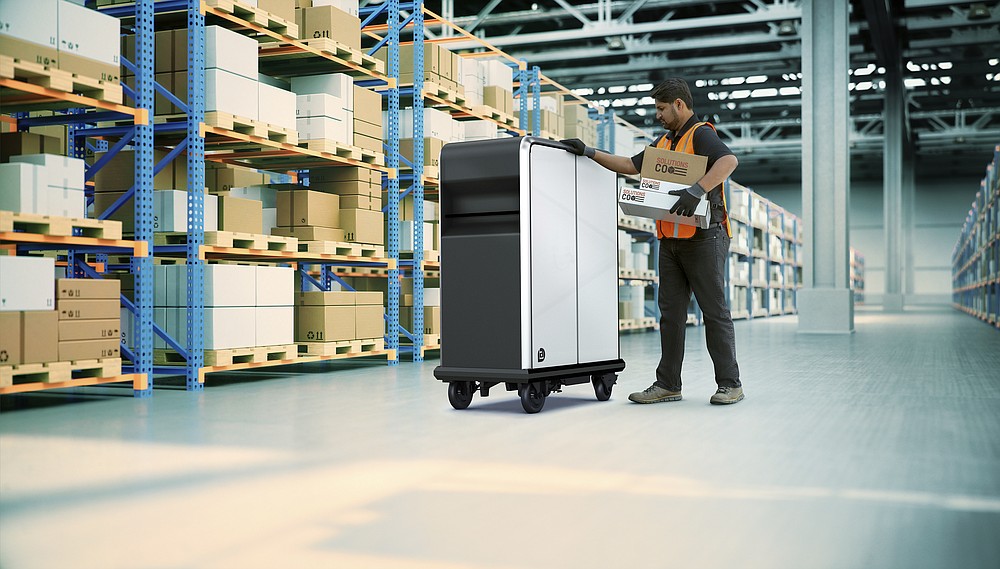DETROIT -- Casting his climate policy as a jobs plan, President Joe Biden left out important context and used fuzzy math on Wednesday when he announced sweeping new green initiatives that he says will boost the U.S. economy with the creation of 1 million new auto jobs.
That's actually far from certain, if not unlikely.
Biden's made the statements at his signing of executive orders that call for replacing the U.S. government's fleet of roughly 650,000 vehicles with electric models and encouraging a broader national shift to electric cars.
"We're going to harness the purchasing power of the federal government to buy clean, zero-emission vehicles that are made and sourced by union workers right here in America," Biden said. This will mean 1 million new jobs in the American automobile industry. One million."
There's plenty of skepticism about this claim. At least some of those new auto-related jobs would come at the expense of current ones. Auto industry analysts don't see how a net gain of 1 million jobs in that sector can come from Biden's plan.
One million new jobs in the auto industry is a highly ambitious goal that would mean more than doubling the number of workers now employed in motor vehicle and parts manufacturing.
Many analysts and the United Auto Workers union, in fact, have warned that electric vehicle manufacturing probably will mean fewer net auto-making jobs.
If more Americans drive electric vehicles, then it stands that fewer will drive gas-powered ones. And because electric vehicles generally have 30% to 40% fewer parts and are simpler to build, fewer workers will be needed to assemble them. That will require a reshuffling of jobs, as workers who once made engines, transmissions and other components for gas-powered cars have to switch to electric motors and batteries.
"Because they are simpler, you're probably going to have far fewer people working in vehicle manufacturing than you have today," said Sam Abuelsamid, principal analyst for Guidehouse Insights. He noted that it's far easier to automate manufacturing of battery cells and packs, which could reduce job levels even more.
More than 100,000 workers are engaged in building gas-powered engines alone.
Abuelsamid added that creating 1 million new auto jobs will be difficult because U.S. new-vehicle sales are projected to be flat at around pre-pandemic levels for the next decade. "If nothing changed, you're not going to have a whole lot more employment," he said.
'A HEAVY LIFT'
The White House did not immediately respond to a request for comment when asked for a breakdown of the 1 million new auto jobs that shows an accounting for lost jobs.
Nor would a shift of jobs from one sector to another necessarily mean that workers losing their jobs could easily make the jump to green jobs in the new economy. Part of Biden's campaign promise has been to promote economic equity, such as providing fuller opportunity for people without college degrees. In the short run, though, those workers may be hurt the most by initial job layoffs.
Kristin Dziczek, a vice president at the Center for Automotive Research, an industry think tank, said Biden's goal isn't well defined and will be "a heavy lift." For example, the administration hasn't said in what time frame the 1 million jobs would be added.
The move toward electric vehicles already is happening, even though fully electric vehicles accounted for less than 2% of U.S. new-vehicle sales last year. On Thursday, General Motors announced a goal of making most of its vehicles electric by 2035, the same year California plans to ban sales of new gas-powered vehicles.
UNION WORKERS
Currently, automakers pay workers who assemble batteries less than they pay those who manufacture vehicles. Also, much of the battery work is done by other companies that pay less than what members of the United Auto Workers union make at vehicle assembly plants.
Tesla Inc., the leading U.S. electric-vehicle manufacturer, has several American-made models, but it isn't unionized. And while General Motors Co. employs union labor to make the electric Chevrolet Bolt, roughly three-quarters of its components come from outside the U.S. -- missing the 50% threshold to be considered American-made under federal procurement law.
Under long-standing federal law, U.S. agencies are directed to purchase domestic products -- a status that applies only to manufactured goods where more than half the value of their components are produced in the U.S. Biden on Monday signed an order directing a federal panel to tighten standards defining American-made products to ensure they are manufactured with a higher percentage of U.S. components and labor.
Spokespeople for the White House and General Services Administration declined to comment on the ability of car-makers to fulfill Biden's pledge.
Biden's campaign has said the additional jobs would include those building and installing the half-million new charging stations, and construction workers who would retool factories to build electric vehicles. Many electric-vehicle components are now made in other countries, and part of Biden's plan is to build a U.S. supply chain to create additional factory jobs, the campaign has said.
"Anybody who tells you it's all positive for jobs -- you can't say one way or the other at this point," Dziczek said.
Information for this article was contributed by Tom Krisher, Christopher Rugaber, Hope Yen and Josh Boak of The Associated Press and by Keith Laing, Jennifer A. Dlouhy and Ari Natter of Bloomberg News (WPNS).

https://ift.tt/39ukdZI
Auto
Bagikan Berita Ini














0 Response to "Doubt cast on auto-jobs claims - Northwest Arkansas Democrat-Gazette"
Post a Comment